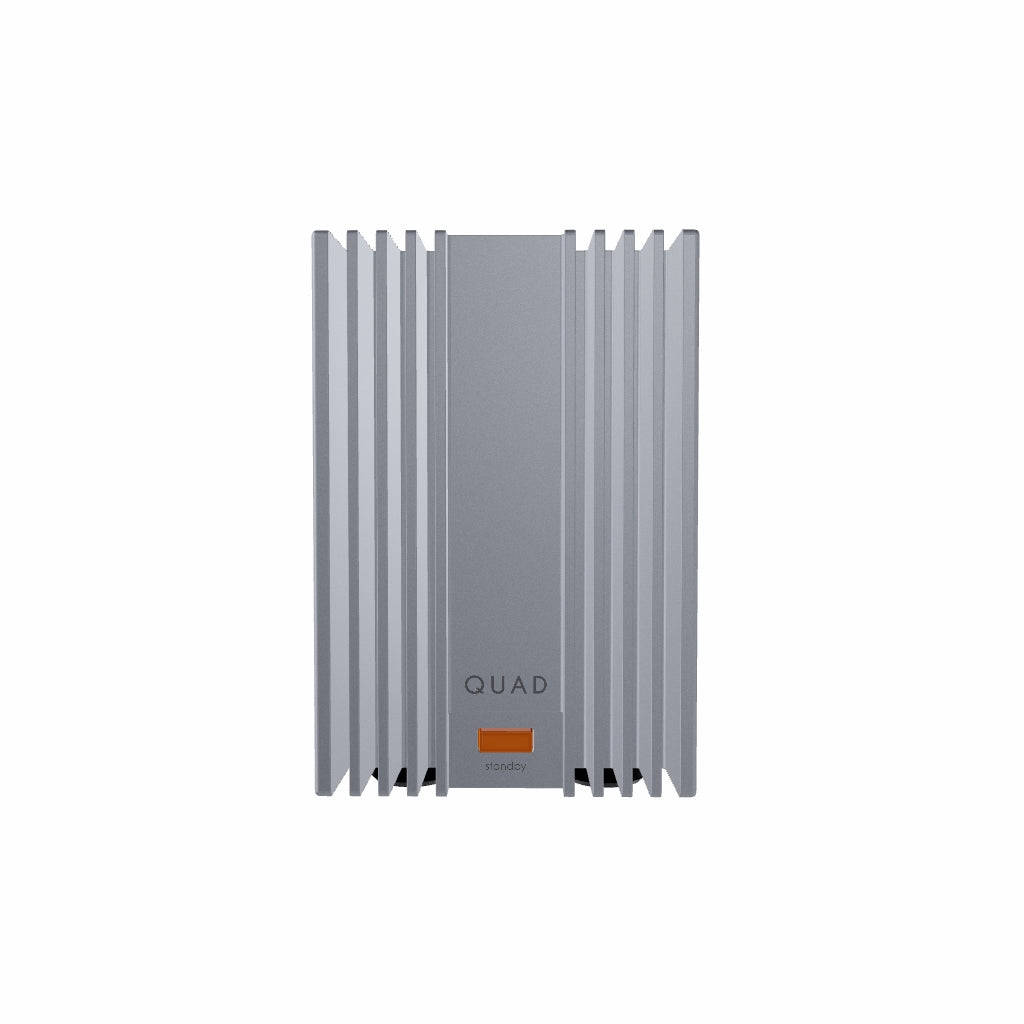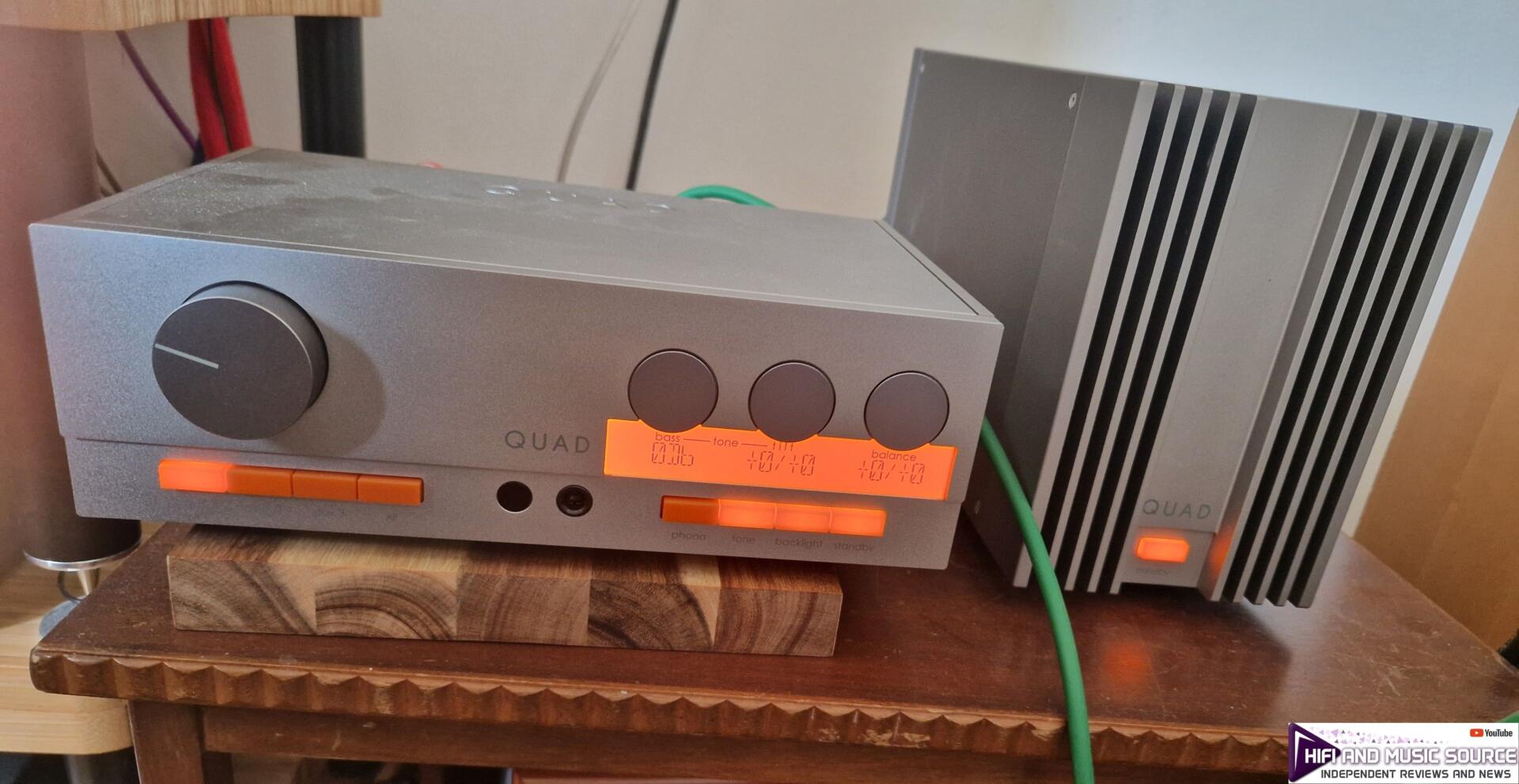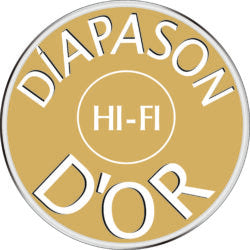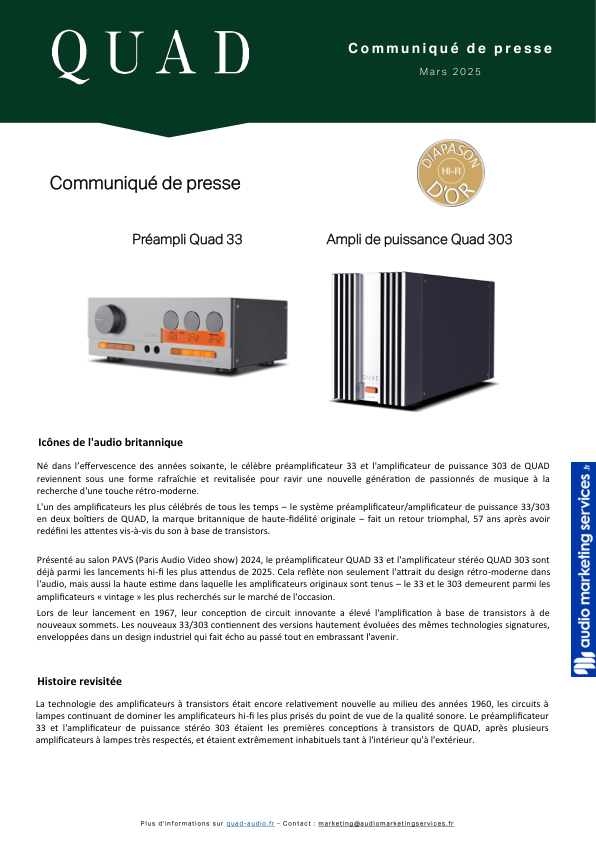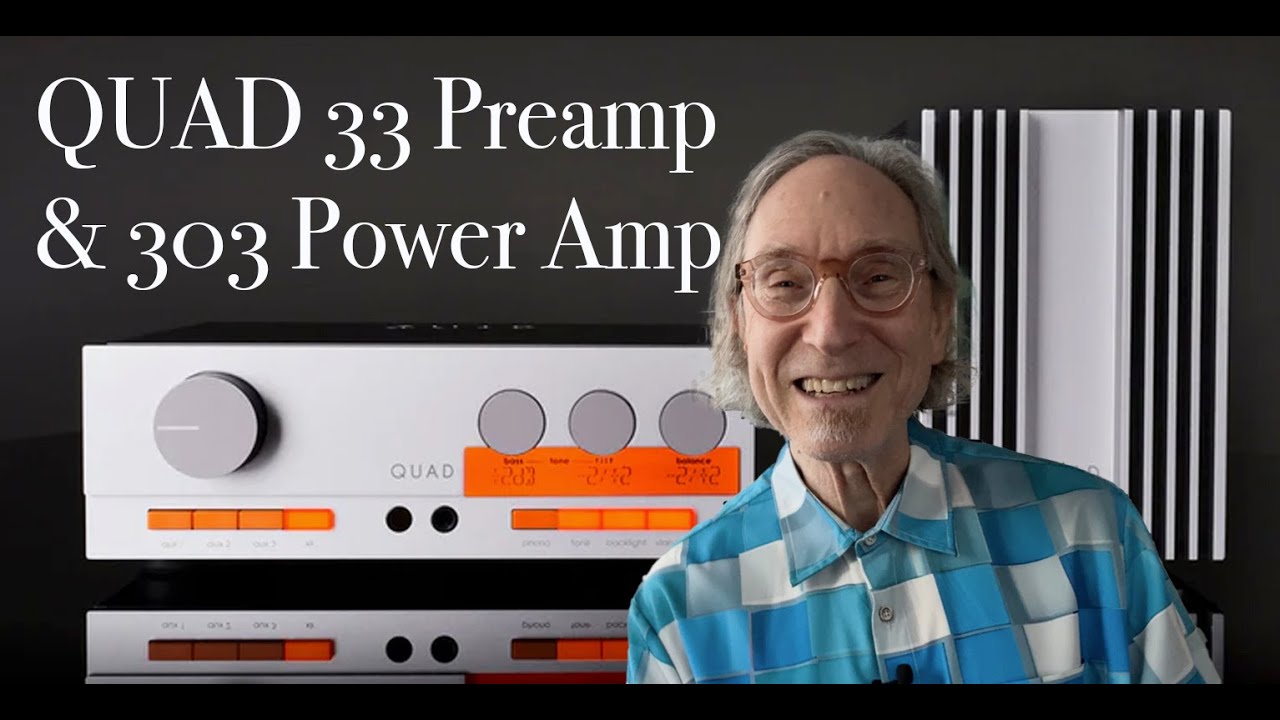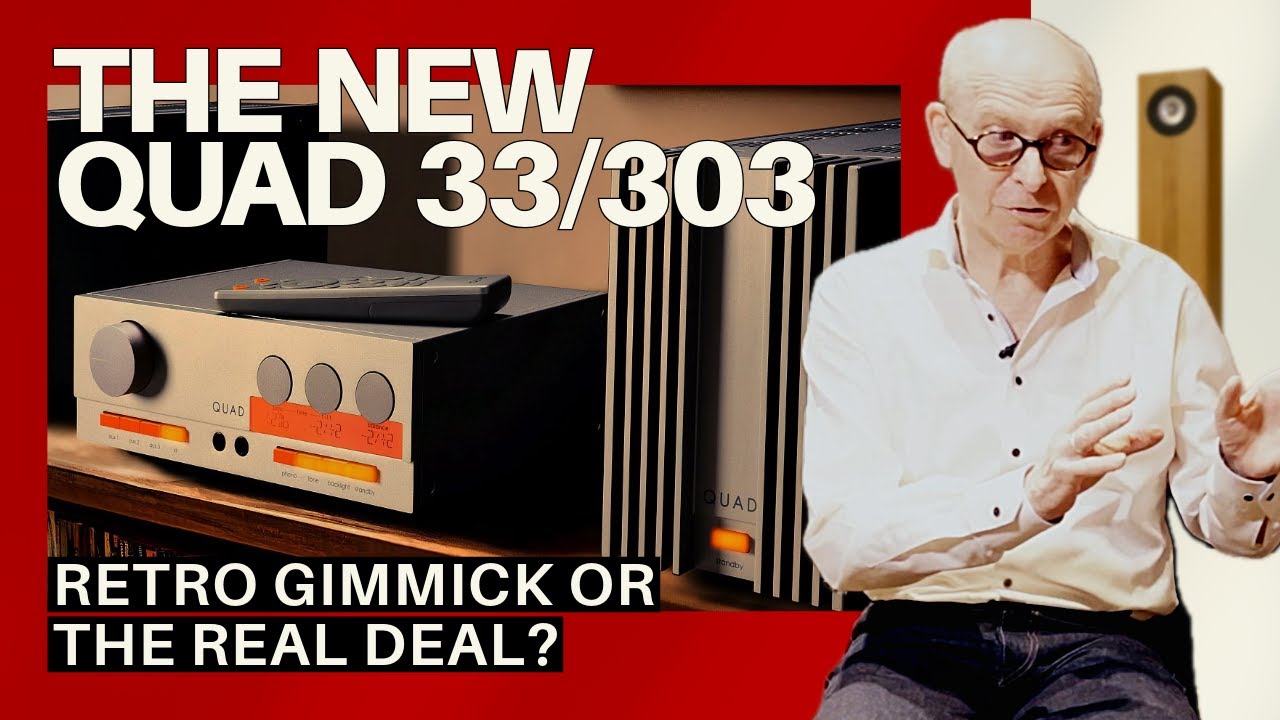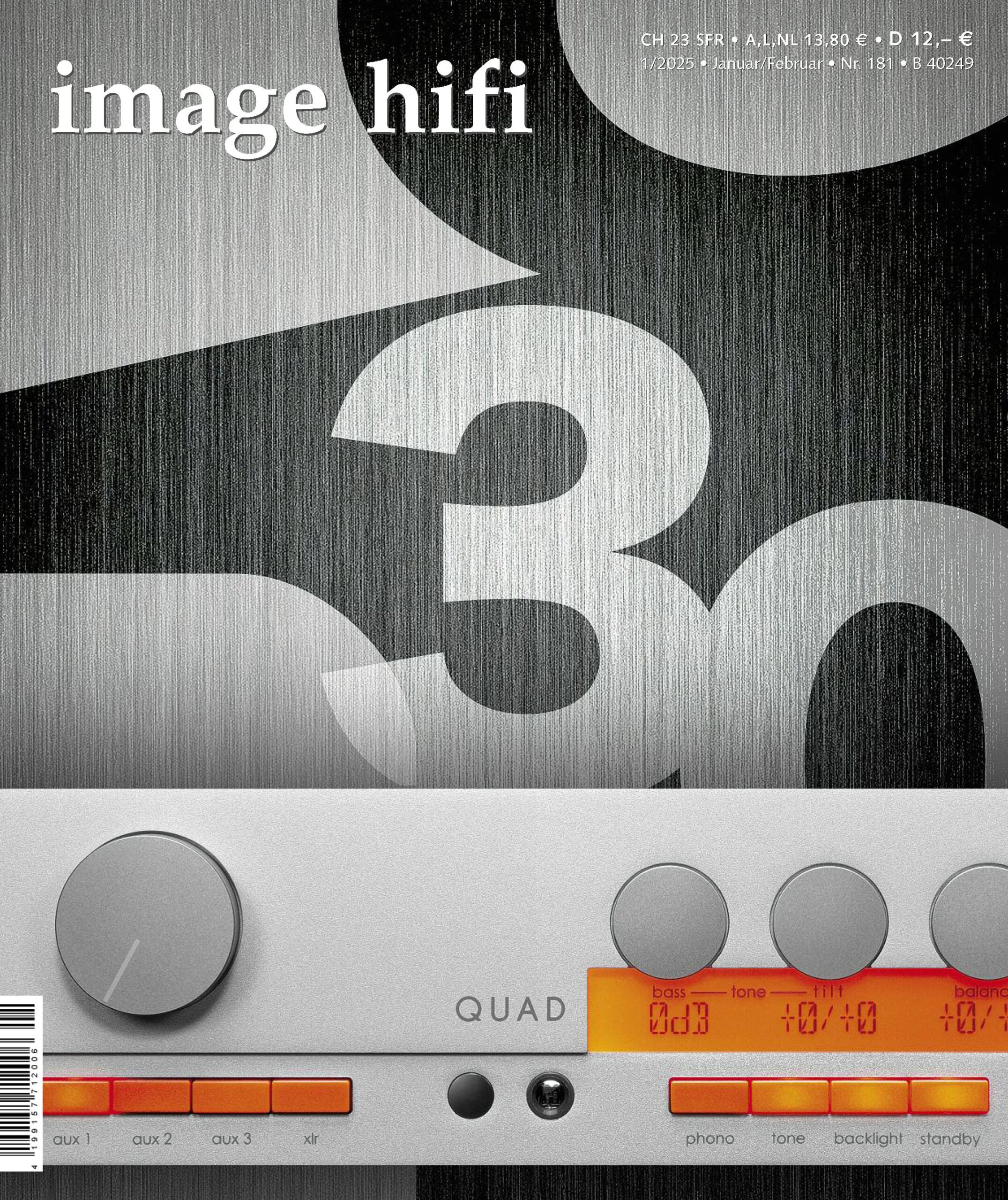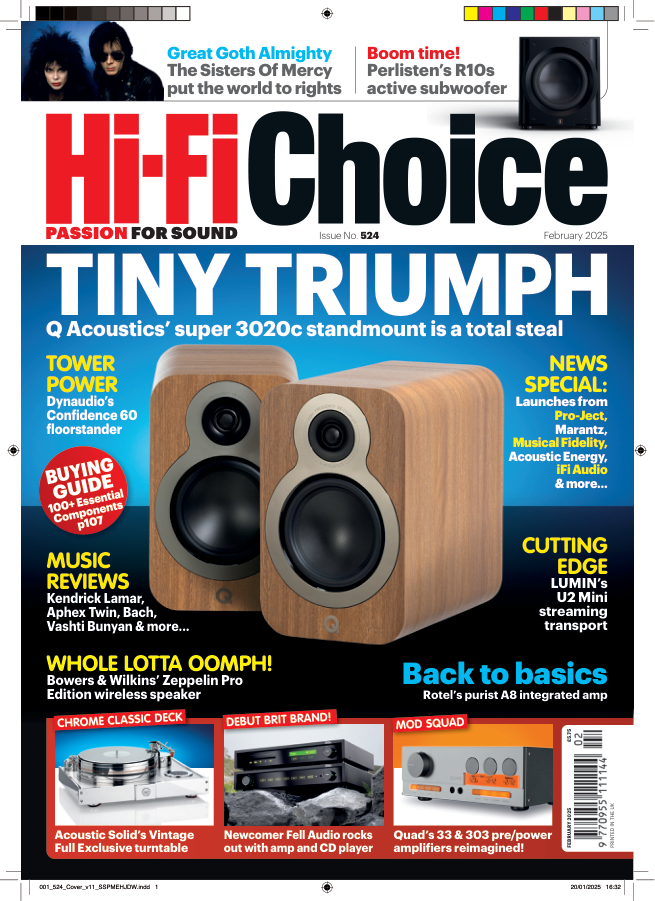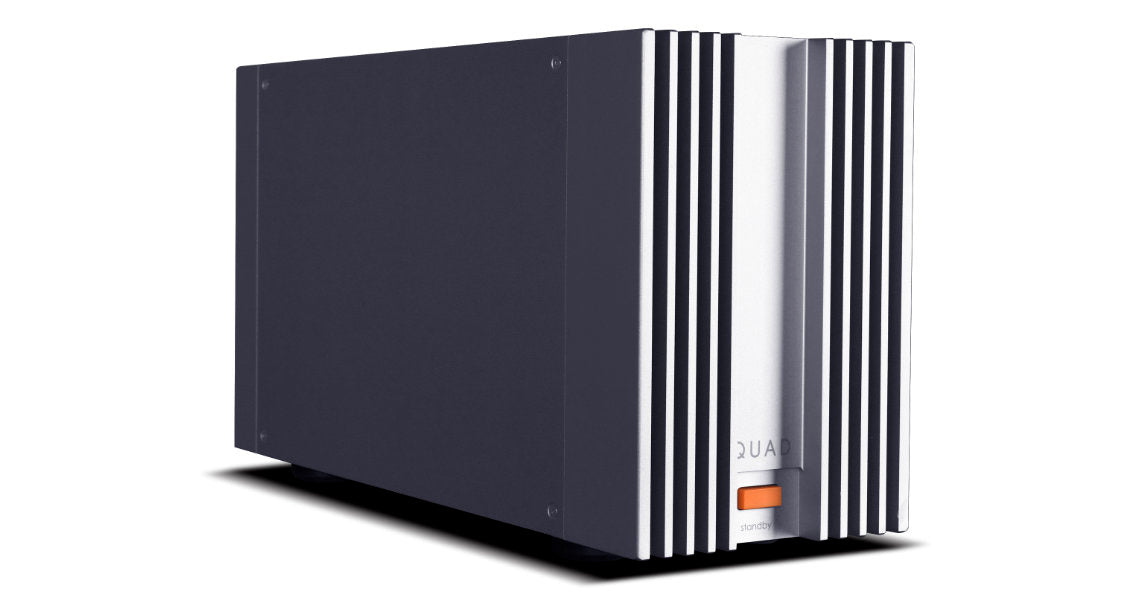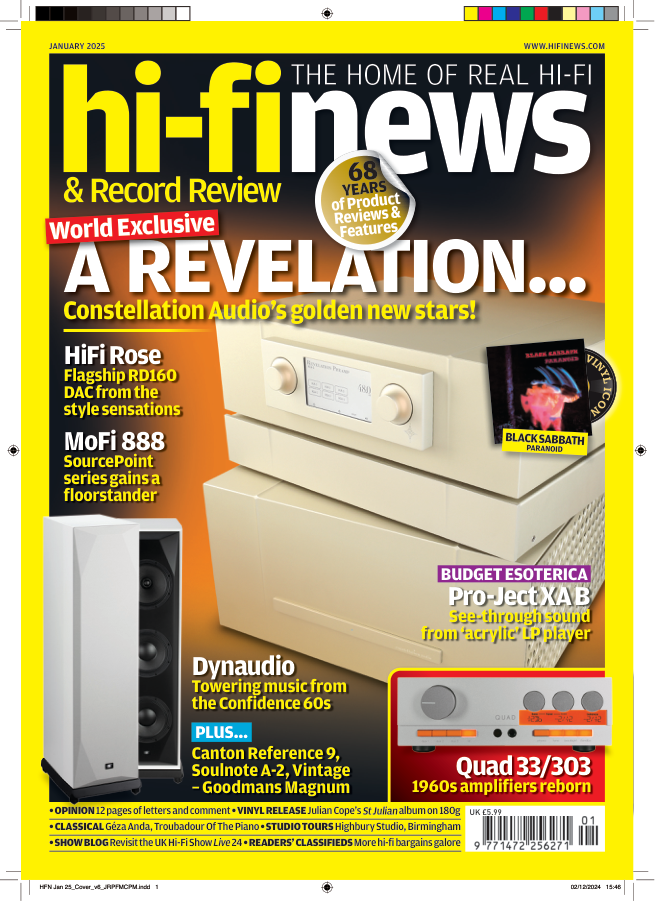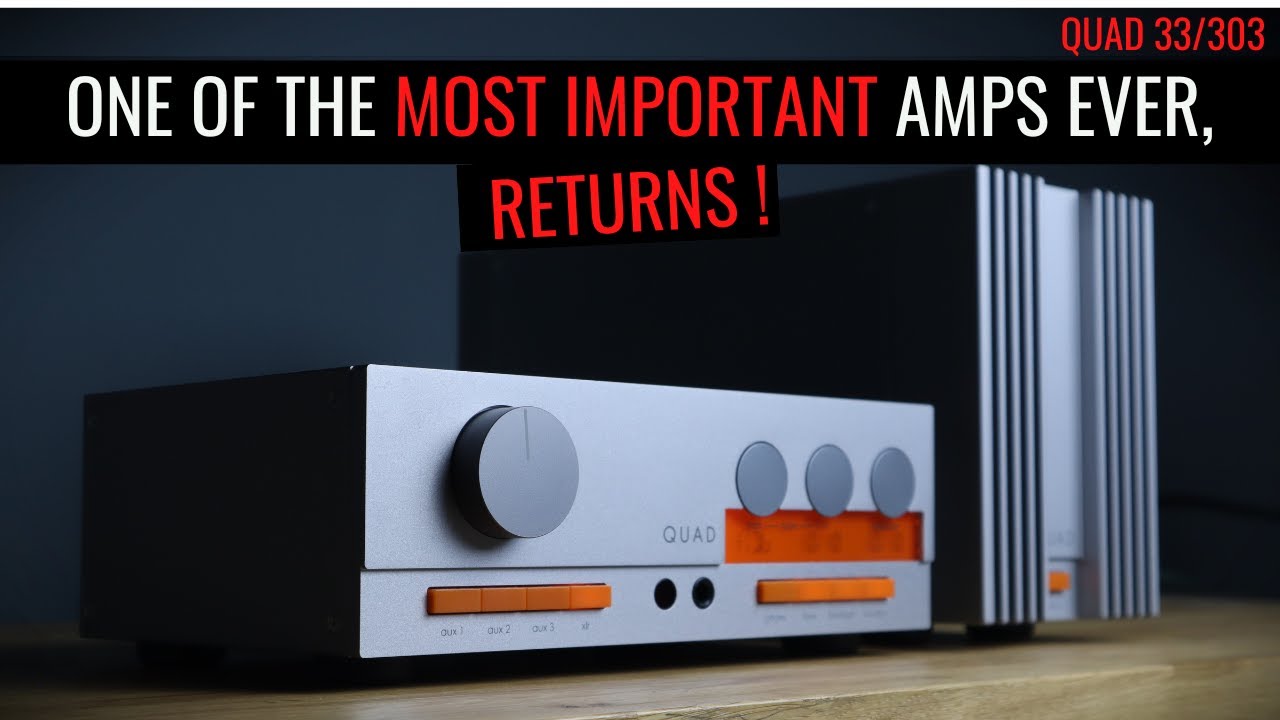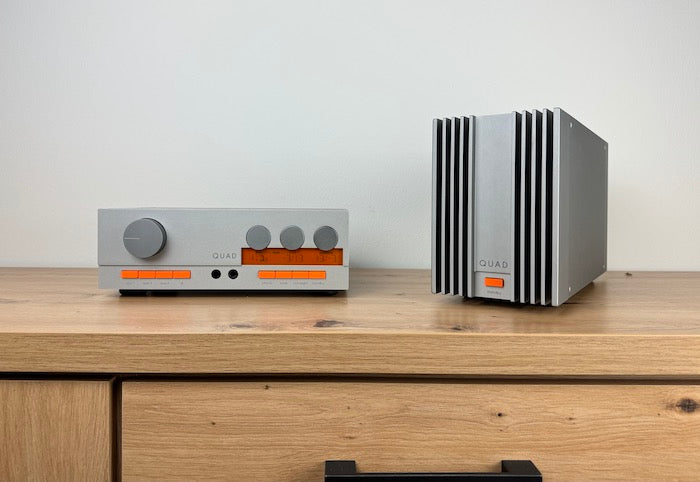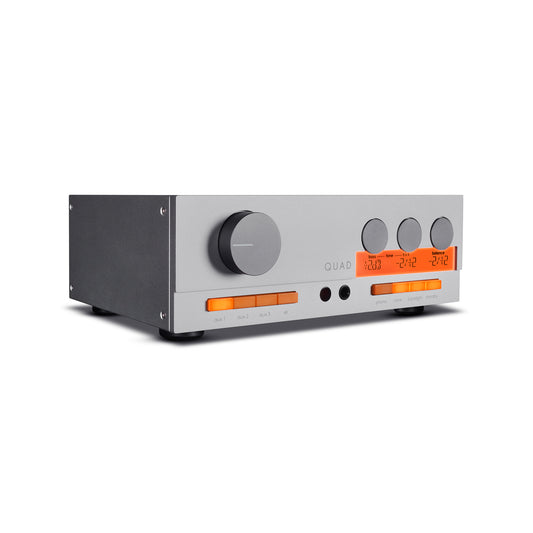



- Overview
- Specifications
- Downloads
- Reviews
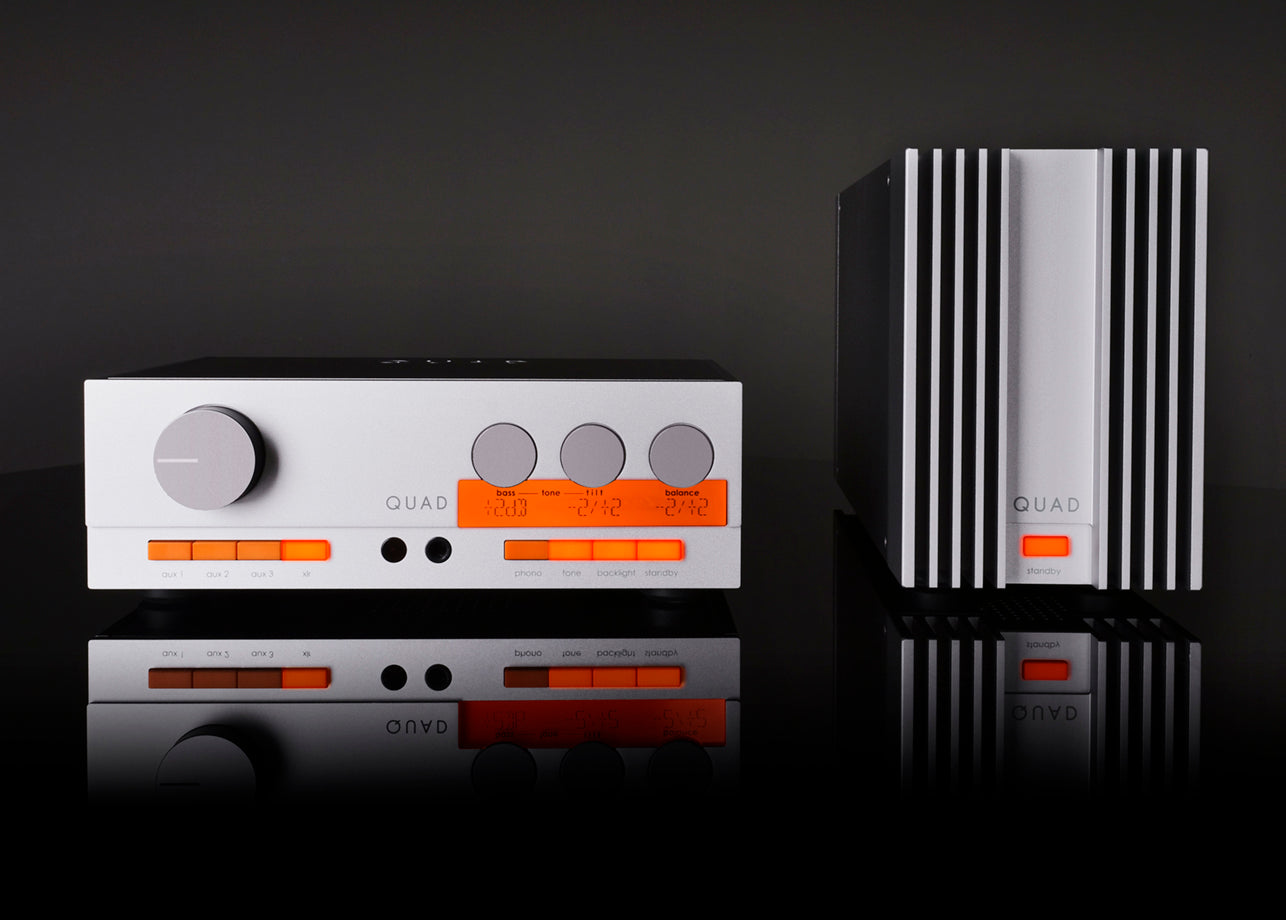
By revisiting the QUAD 33 and 303 components, QUAD demonstrates its authenticity, pedigree and excellence as a juggernaut of the British hi-fi world - past and present.
In listing the names involved in the development of this stunning iteration of an icon, you’ll find a calculation of close to 200 years of engineering experience and 100+ years of QUAD-exclusive design and service.
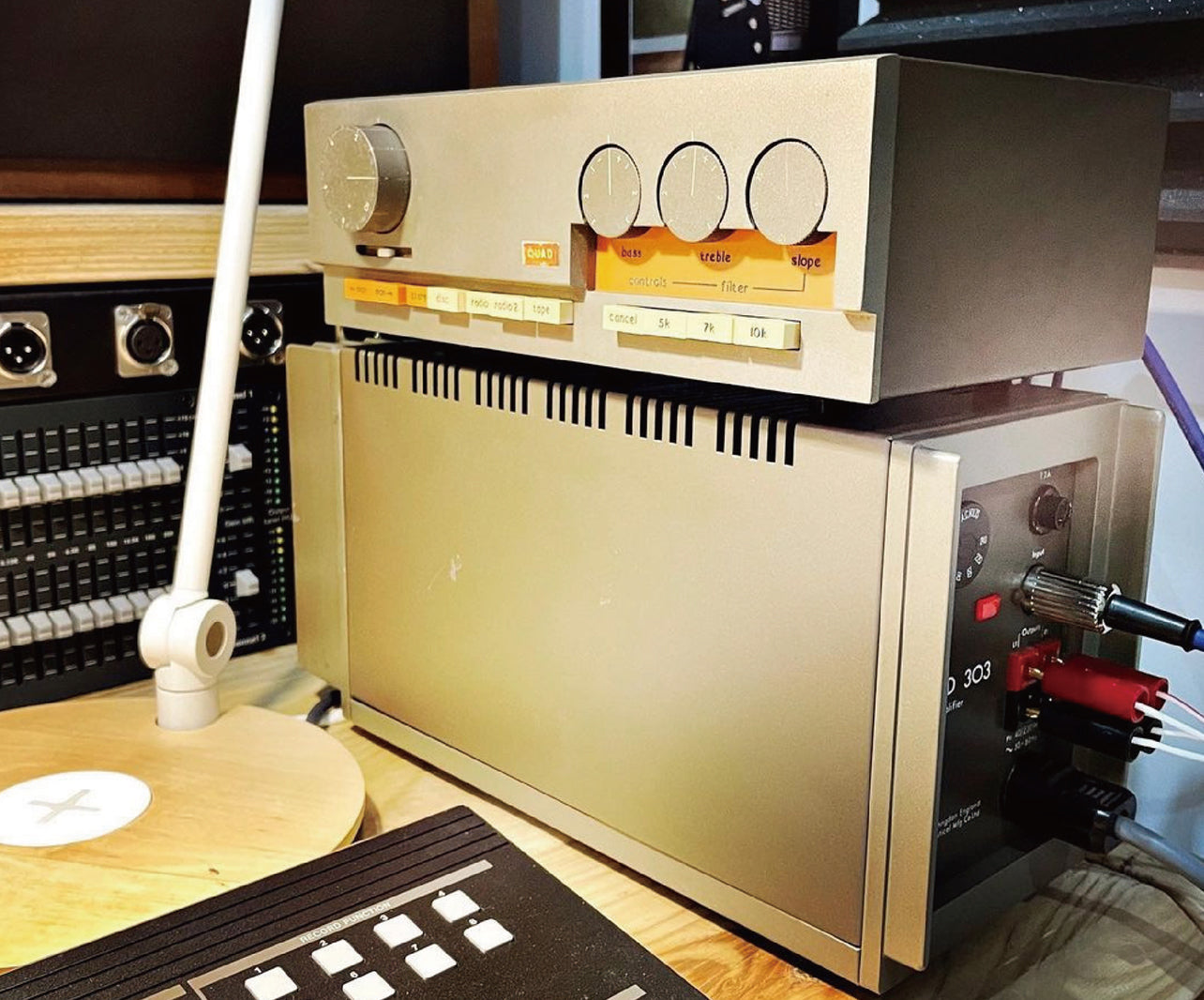
A dream team of Rob Flain & Paul McConville (the world’s most experienced QUAD service engineers), Jan Ertner (30 years of experience in QUAD design), Peter Comeau (the acoustic director behind some of QUAD’s most successful loudspeakers) and David McNeill (the industrial designer responsible for two decades of QUAD innovations) were all a part of this labour of love, making no compromise in the demand for a product that could bear the name of 33 and 303.
The QUAD 303 power amplifier was intended for normal domestic use with loudspeakers of moderate efficiency, but was also used by broadcasting and recording studios, worldwide, who appreciate its excellent performance and dependability. The ethos hasn’t deviated.
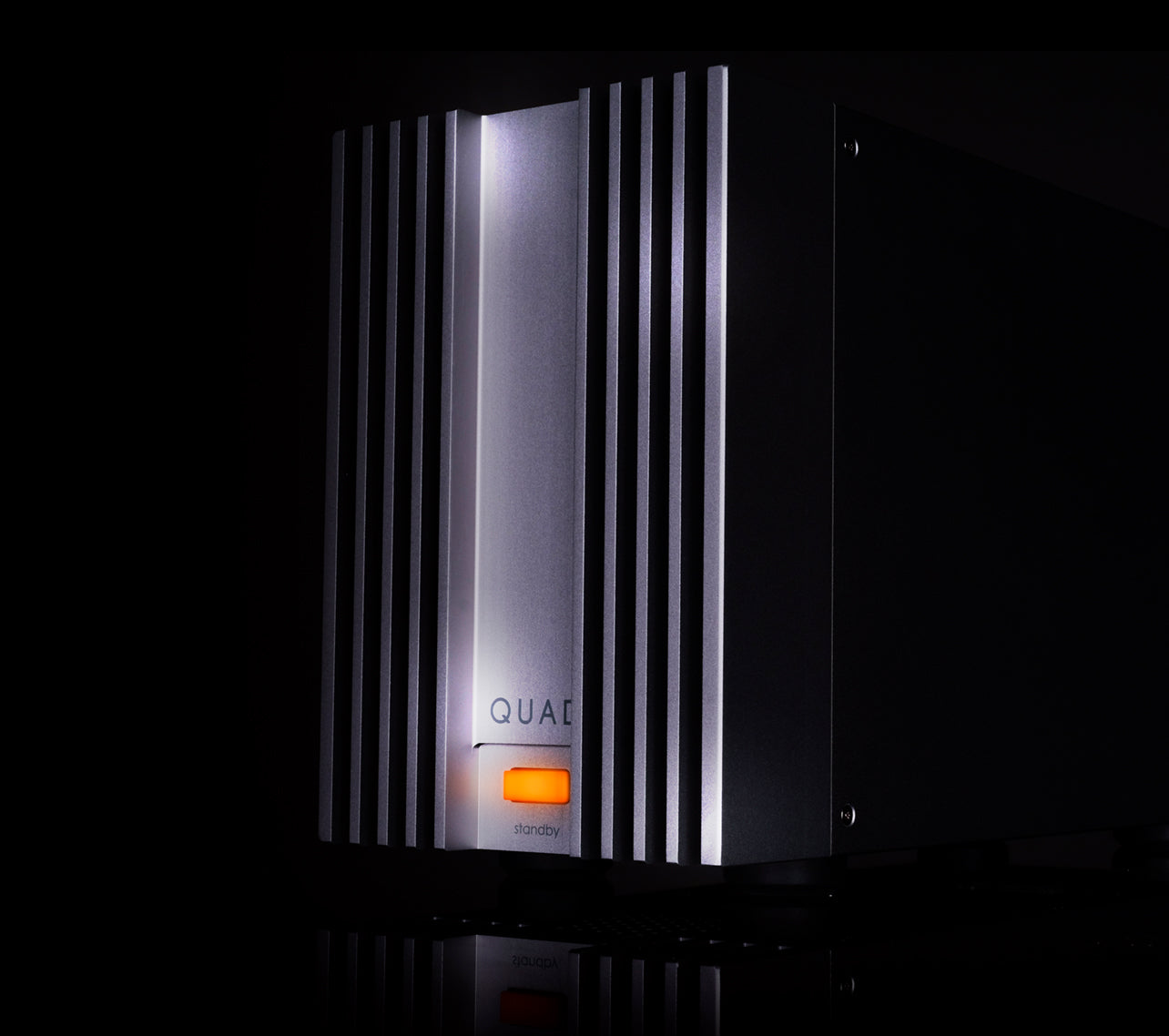
Function
The outstanding performance of the QUAD 303 is still celebrated to this day, and is largely due to the unique output circuit developed by QUAD.
In reissuing the QUAD 303 power amplifier concept, exactly like the matching 33 preamplifer, QUAD’s incomparably experienced service team was matched with the equally adept engineering team to reinvoke the design, romance and performance in a thoroughly modern iteration of a hi-fi legend.
As with the new QUAD 33, every aspect of design and performance has been analysed and re-engineered way beyond simply modernising components and refreshing of specifications.
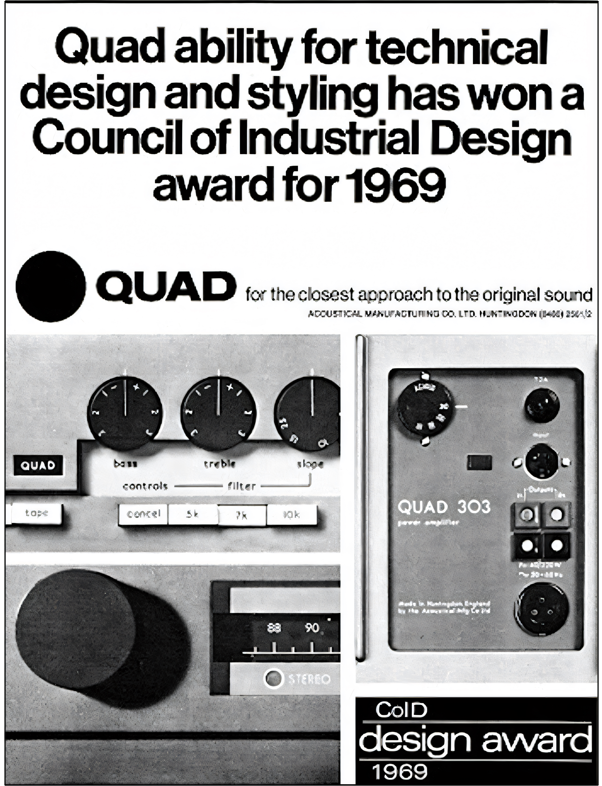
The QUAD 303 power amplifier was intended for normal domestic use with moderately efficient loudspeakers, but it was also used by broadcasting and recording studios worldwide, who appreciated its excellent performance and dependability.
The ethos hasn’t deviated. The original 33 and its partnering 303 were awarded with a ‘Council ofIndustrial Design Award in 1969’. Even today, the original design is celebrated and confirmed by its presence at the Museum of Modern Art in New York. The new 33 and 303 have been industrially engineered to surpass those original standards, with a truly modern appearance and functionality.
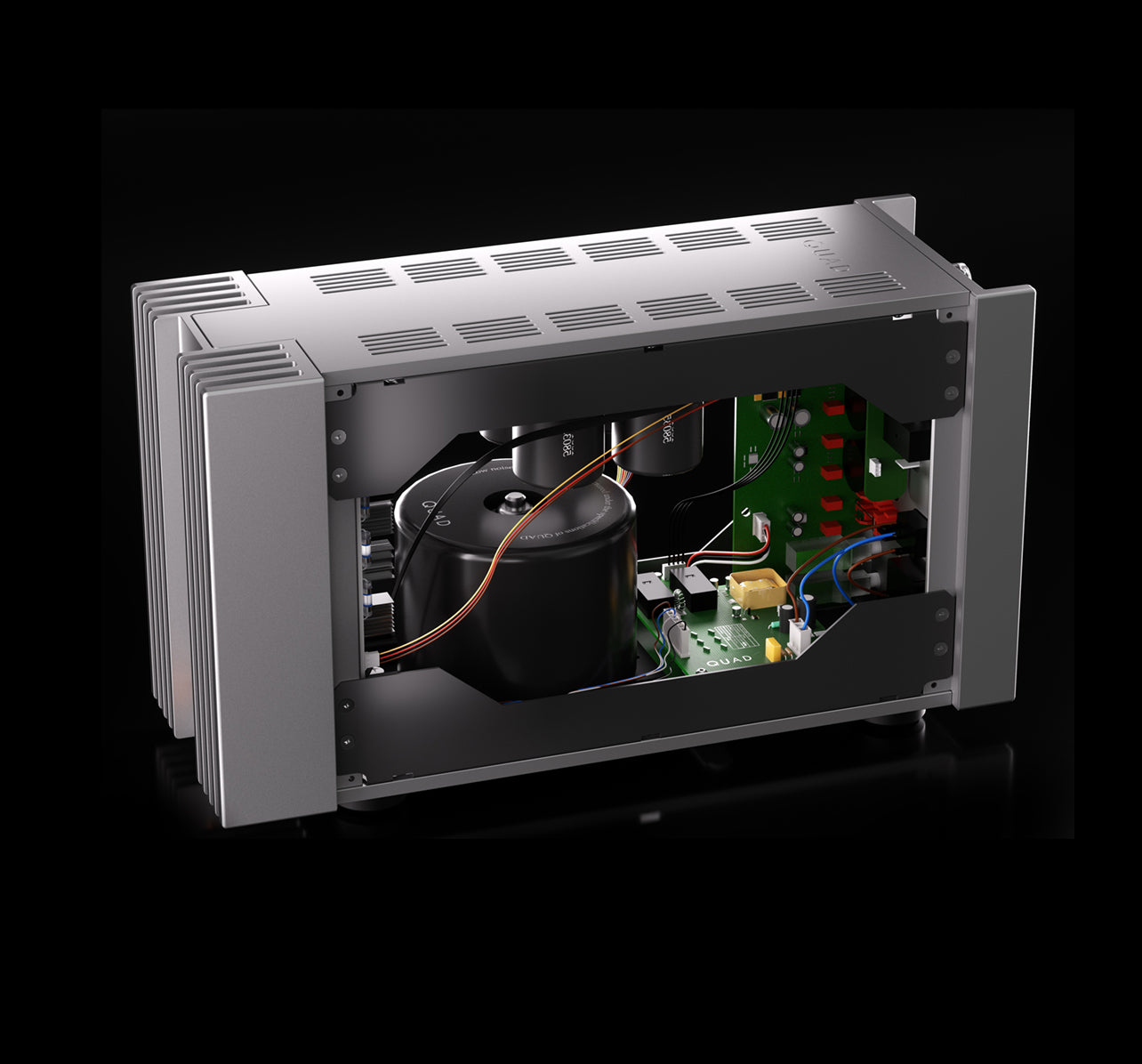
Circuitry
However, much like the original, the new QUAD 303 maintains its faithfulness to the original by employing the famous QUAD ‘symmetrical triples’. Employed to provide a completely symmetrical output stage, greatly reducing distortion and rendering the resting current independent of output transistor temperature.
This development enables the designers to reduce distortion to emphatically low levels without sacrificing stability and to maintain this excellence under all dynamic conditions.
To put this in perspective, the lowest theoretical distortion present on the very source material will still be some hundred times greater than that the QUAD 303!
Such a level is, of course, completely inaudible no matter how refined the test.
The use of ‘triples’ permits simple and effective control of the output current and since the voltage is also controlled, the output transistors are completely protected and must always operate within their ratings with the obvious advantages of greatly improved reliability under all conditions, without the use of elaborate and expensive circuitry.
Due to the lack of complementary transistors (NPN and PNP power transistors) in earlier times, the older QUAD 303 used a quasi-complementary output stage. The new version of the QUAD 303 now uses a fully complementary output stage, providing better linearity, more stable static bias, and improved stability under high voltage and large current conditions. Using premium power transistors, the 303 offers excellent gain linearity for accurate reproduction of the input signal with greater dynamic range.
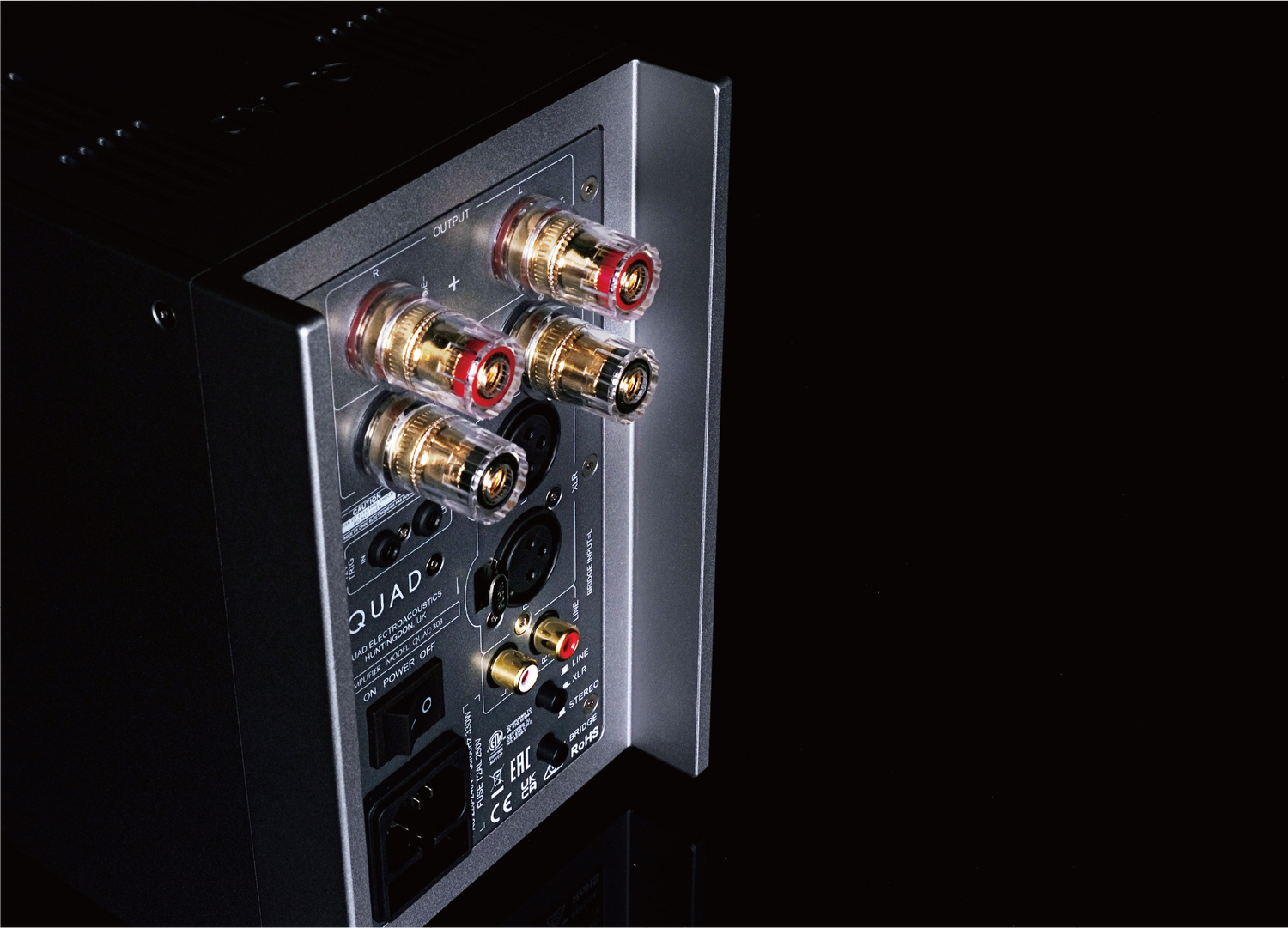
Always respected for its conservative but consistent power-output, the classic QUAD 303 was officially rated at 45W @ 8 ohms. A modest but honest output, the 303’s venerability is in the finesse of the performance, not just the raw power. The new model is thoroughly the same.
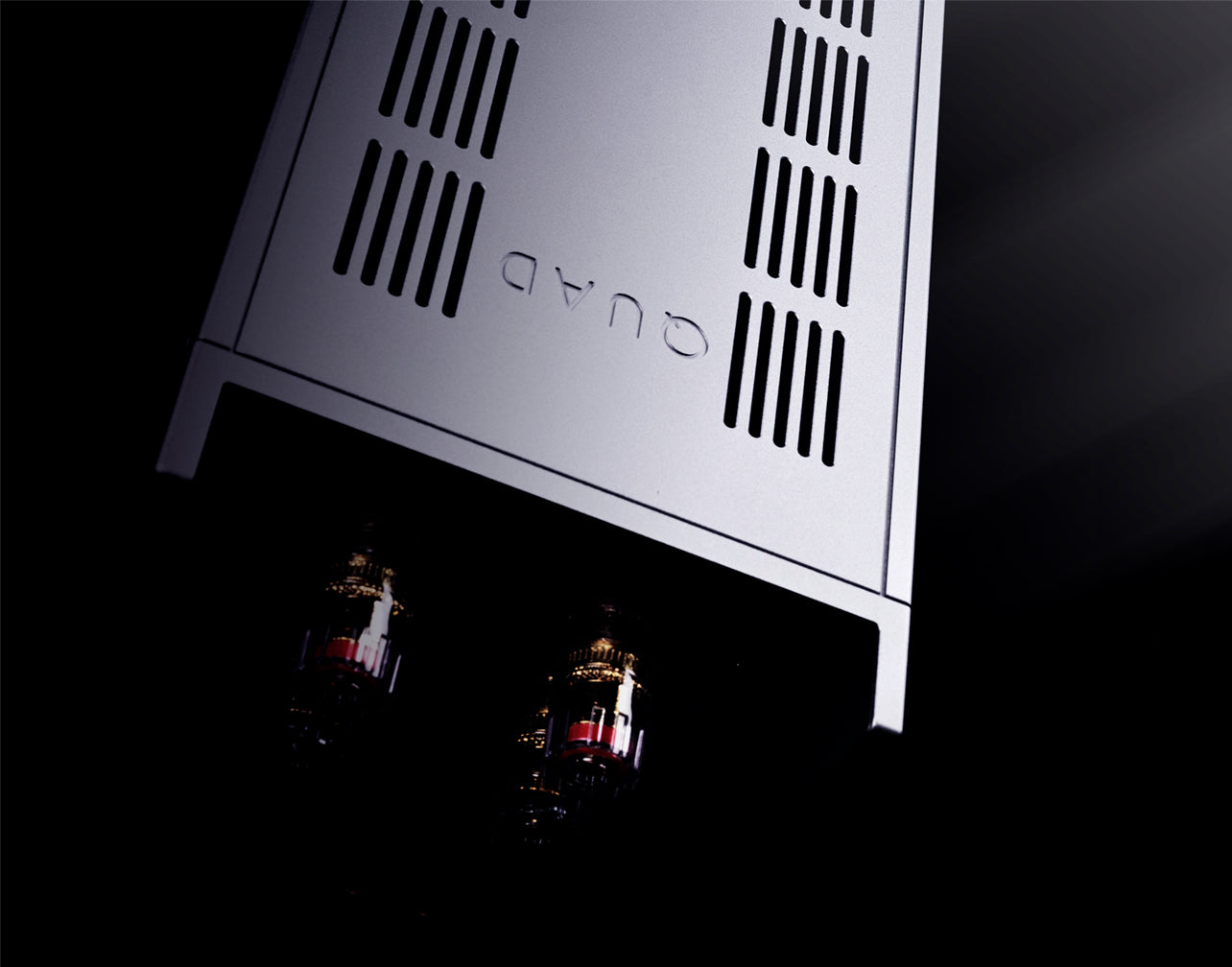
However, with some tweaking and enhancements, the 303 is loaded with a little extra power – offering 50W @ 8 ohms (70W @ 4 ohms) with a maximum current delivery of 10A into difficult loads. The original 303 was known to have issues with lower impedance loads, the new 303 has no such trouble. Perfectly suited to the more demanding requirements of the modern audiophile, it ensures any speakers – even including QUAD’s electrostatic designs – can be driven with ease. Connectivity options comprise single-ended RCA and balanced XLR inputs, a 12V trigger input and high-quality speaker binding posts. Simple, solid and thoroughly authentic, inside and out. The power output for 'bridged mode' (for use as a mono-block power amplifier) reaches 140W @ 8 ohms or 170W @ 4 ohms (bridged mono).
Specifications
| Model | QUAD 303 |
| General Description | Power Amplifier |
| Design Philosophy and Core Technology | Class AB Power Amplifier QUAD 303 Triples Output Stage Custom 200VA Toroidal Transformer Stereo/Bridge mode selection |
| Inputs | 1 x Line, 1 x XLR |
| Outputs | 1 x 12V Trigger 1 x Stereo Speaker, 1 x 12V Trigger (Link) |
| Power Amplifier Section | |
| Gain | +29dB |
| Rated Power Output | Stereo: 2 x 50W (8 ohms, THD<1%) Stereo: 2 x 70W (4 ohms, THD<1%) Bridged: 140W (8 ohms, THD<1%) Bridged: 170W (4 ohms, THD<1%) |
| Frequency Response | 20Hz - 20kHz (+/-0.3dB) |
| Total Harmonic Distortion (THD) | <0.002% (1kHz) |
| Input Impedance | 15k ohms (Line) 22k ohms (XLR) |
| Input Sensitivity | 700mVrms (Line) 1.5Vrms (XLR) |
| Signal-to-Noise Ratio (S/N) | > 108dB (A - weighted) |
| Max. Output Current | 10A |
| General | |
| Standby Power Consumption | <0.5W |
| Net Weight | 8.4kg |
| Gross Weight | 9.5kg |
| Dimensions (mm) (W x H x D) | 120 x 176 x 325 |
| Carton Size (mm) (W x H x D) | 226 x 312 x 462 |
| Finish | Classic QUAD Grey |
| Power Requirements (depending on region) | 220 - 240V - 50 / 60Hz 100 - 120V - 50 / 60Hz |
| Standard accessories | Power Cord, Remote Control, User Manual |




